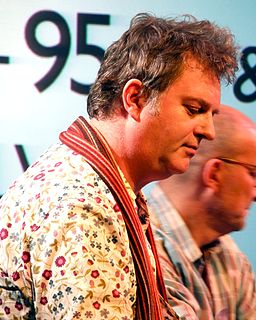A Quote by Francis Ford Coppola
I just finished a film a few days ago, and I came home and said I learned so much today. So if I can come home from working on a little film after doing it for 45 years and say, "I learned so much today," that shows something about the cinema. Because the cinema is very young. It's only 100 years old.
Related Quotes
I learned to live many years ago. Something really, really bad happened to me, something that changed my life in ways that, if I had my druthers, it would never have been changed at all. What I learned from it is that today seems to be the hardest lesson of all. I learned to love the journey, not the destination. I learned that it is not a dress rehearsal, and that today is the only guarantee you get. I learned to look at all the good in the world and to try to give some of it back because I believed in it completely and utterly.
More than my other films, Uncle Boonmee is very much about cinema, that's also why it's personal. If you care to look, each reel of the film has a different style - acting style, lighting style, or cinematic references - but most of them reflect movies. I think that when you make a film about recollection and death, you have to consider that cinema is also dying - at least this kind of old cinema that nobody makes anymore.
I first came to cinema as a passionate filmgoer, when I was a child. Then, when I was a very young man, I became a film critic precisely because of my knowledge of cinema. I did better than others because of this. Then I moved on to screenwriting. I wrote a film with Sergio Leone, 'Once Upon a Time in the West.' And then I moved to directing.
There's something magical about film, it's the ultimate for me, because it's kind of permanent - inasmuch as anything is. When I went to see Buster Keaton when I was about 14 and I came out of the cinema having really laughed at this film which had been made 50 years before, I thought: That's immortality. It's fantastic.
Just look at the cinema itself: It's comprised of lots of movies about graphic novels, and if you're not 20 years old and wearing a cape and a mask and white, you're out of business. Today's cinema is a proliferation of comedies, which are in some ways creating caricature images. They're one-dimensional.
You get very little from the studios anymore, it's all independent. And I think the studio, with the exception of something like The Social Network, a fine film, very interesting, but as for studio pictures, that's it, what else? There was more only a few years ago. So it changes, and I'm trying as much as I can.




































